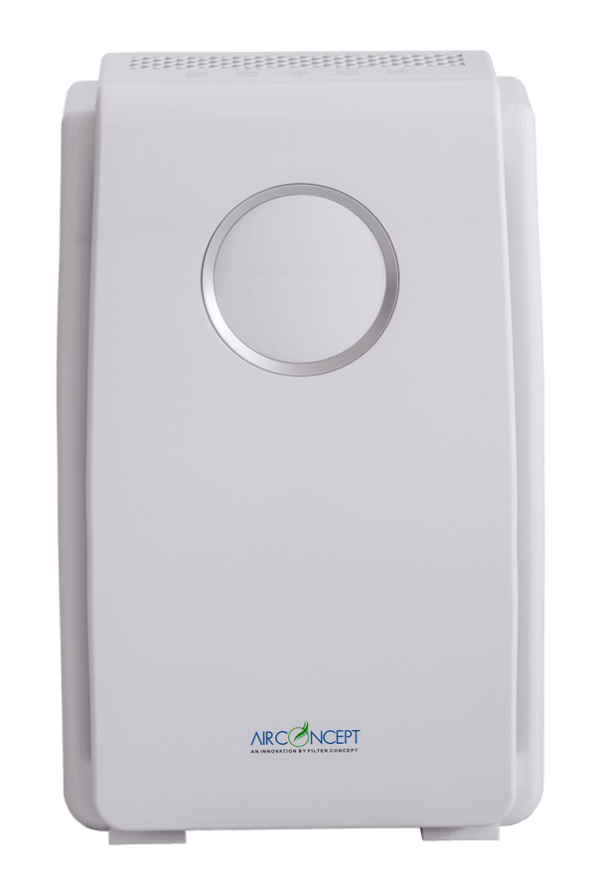Indoor air often feels safe, but the reality is surprising—pollutants indoors can be two to five times higher than outdoors. Dust, pet dander, smoke, mold, volatile organic compounds (VOCs) from furniture, and even cooking fumes contribute to indoor air pollution. With people spending more than 80% of their time inside homes, ensuring clean air has never been more important. That’s where a home air purifier comes in—a device designed to clean your living environment and improve overall well-being.
In this comprehensive guide, let’s explore what a home air purifier is, how it works, its benefits, types, buying considerations, and whether it’s truly worth the investment.
What is a Home Air Purifier?
A home air purifier is a device that filters out unwanted particles, pollutants, and contaminants from the air in enclosed spaces. Think of it as a “silent guardian” that keeps your indoor air free from invisible threats like allergens, bacteria, smoke, and chemicals.
Most air purifiers use advanced filtration systems such as:
-
HEPA Filters – Capture 99.97% of airborne particles as small as 0.3 microns.
-
Activated Carbon Filters – Absorb odors, gases, and chemical vapors.
-
UV Light Purifiers – Kill bacteria, viruses, and germs.
-
Ionizers – Release negatively charged ions to trap pollutants.
Each technology targets specific pollutants, making air purifiers suitable for different lifestyles and health needs.
Why Do You Need a Home Air Purifier?
1. Combat Allergies and Asthma
Seasonal allergies and asthma are often triggered by tiny particles like pollen, dust mites, and pet hair. A home air purifier with a HEPA filter can significantly reduce these allergens, helping you breathe easier.
2. Protection Against Airborne Diseases
Airborne viruses and bacteria spread quickly in closed spaces. An air purifier helps reduce the risk of transmission, especially useful in homes with children, elderly family members, or anyone with a weak immune system.
3. Eliminates Odors and Smoke
Cooking smells, cigarette smoke, or pet odors can linger indoors. Activated carbon filters in air purifiers absorb these odors, leaving your home fresh and pleasant.
4. Safeguard Against Outdoor Pollution Indoors
If you live in a city with high air pollution, fine particles and smog can seep indoors through windows and doors. Air purifiers act as a barrier, giving you cleaner air to breathe at home.
5. Improves Sleep and Mental Well-being
Clean air directly impacts sleep quality. With fewer allergens and pollutants disturbing your breathing, you enjoy deeper, more restful sleep. Fresh air also boosts focus, mood, and productivity.
Types of Home Air Purifiers
Not all purifiers are built the same. Here are the main types available:
1. HEPA Air Purifiers
-
Best for allergies and asthma.
-
Capture microscopic particles like dust, mold spores, and pet dander.
-
Highly recommended for households with children or sensitive individuals.
2. Activated Carbon Purifiers
-
Designed to absorb gases, odors, smoke, and VOCs.
-
Perfect for homes with smokers, pets, or strong cooking aromas.
3. UV-C Light Purifiers
-
Use ultraviolet light to destroy germs, bacteria, and viruses.
-
Often combined with HEPA filters for maximum protection.
4. Ionic Purifiers
-
Emit negative ions that bind with airborne particles, causing them to drop out of the air.
-
Effective but may produce ozone, which is harmful in high levels.
5. Hybrid Purifiers
-
Combine HEPA, activated carbon, and UV filters for all-in-one protection.
-
Ideal for households seeking complete coverage.
Key Features to Look for in a Home Air Purifier
When buying a home air purifier, consider the following:
-
Room Coverage (CADR Rating) – Check the Clean Air Delivery Rate (CADR) to ensure the purifier matches your room size.
-
Filter Type & Replacement Cost – HEPA filters require replacement every 6–12 months; carbon filters may need more frequent changes.
-
Noise Level – Opt for a quiet model, especially for bedrooms.
-
Energy Consumption – Choose an energy-efficient purifier if it will run 24/7.
-
Smart Features – Wi-Fi connectivity, air quality sensors, and automatic speed adjustment enhance convenience.
-
Maintenance – Easy-to-clean pre-filters extend the life of main filters.
Home Air Purifier vs. Natural Ventilation
Some people wonder if simply opening windows can replace an air purifier. While natural ventilation is important, outdoor air often carries pollutants inside, especially in cities with high AQI (Air Quality Index). A home air purifier ensures consistent protection regardless of outdoor conditions.
Cost vs. Benefits
-
Initial Cost – Quality purifiers range from $150 to $600 depending on size and features.
-
Running Cost – Electricity plus filter replacements add $50–$150 annually.
-
Health Benefits – Fewer allergies, reduced doctor visits, improved sleep, and higher productivity far outweigh the costs in the long run.
Investing in a home air purifier is not just about comfort—it’s a step toward preventive healthcare.
Common Myths About Home Air Purifiers
-
“They remove all pollutants instantly.” – Purifiers work gradually and need continuous use.
-
“They don’t need filter changes.” – Regular filter replacement is essential for effectiveness.
-
“Plants are enough to clean air.” – While plants improve oxygen, they cannot filter harmful particles like smoke or VOCs.
How to Get the Best Out of Your Home Air Purifier
-
Place it in the most-used room, away from walls and furniture.
-
Keep doors and windows closed for maximum efficiency.
-
Run it continuously, especially during allergy or pollution season.
-
Replace filters on schedule for consistent performance.
Final Thoughts
A home air purifier is no longer a luxury—it’s a necessity in modern homes. With rising air pollution and increasing cases of allergies, asthma, and respiratory issues, clean indoor air is vital for health and comfort. Whether you live in a busy city, have pets, or simply want a healthier home, an air purifier can make a noticeable difference.
It’s not just about breathing easier; it’s about living better.
